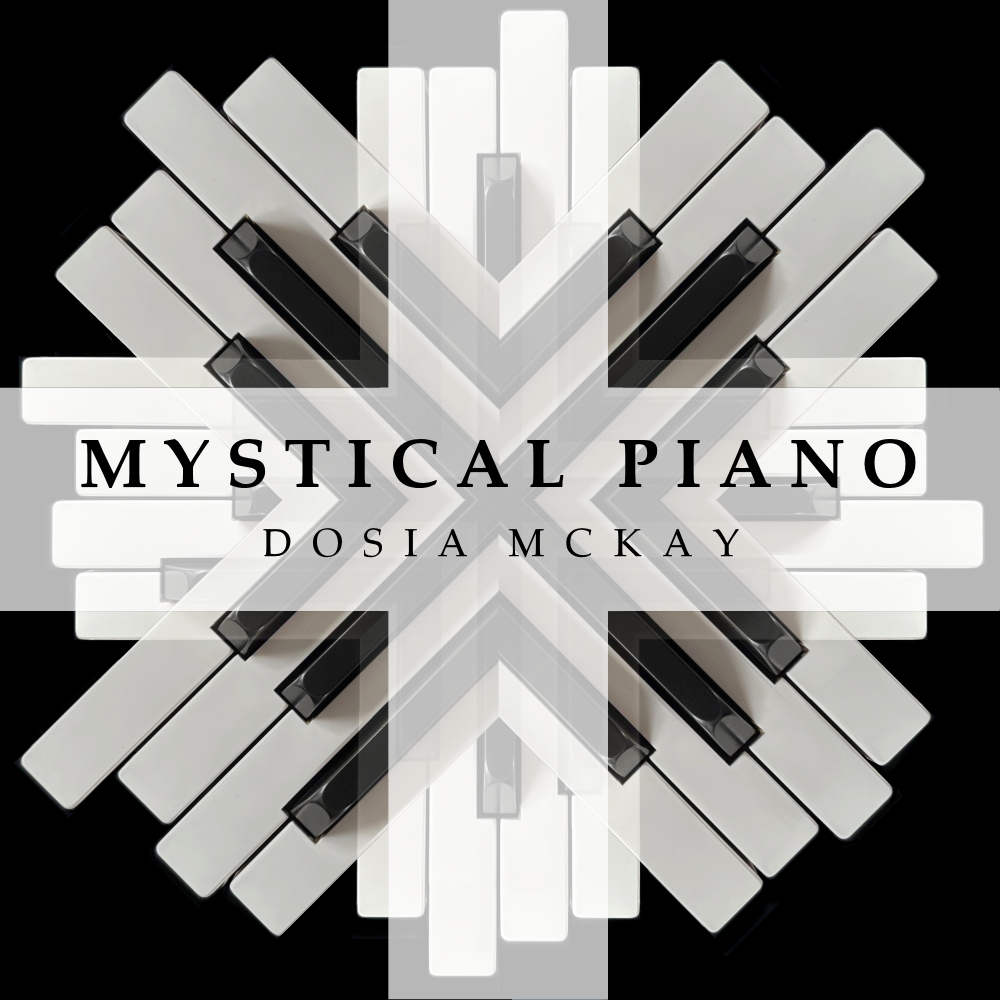Mystical Piano
Now available on most download and streaming platforms. This album has been mastered for nuanced and subtle dynamics perceived by high quality headphones and stereo systems. High fidelity downloads from Bandcamp are recommended.

1. Beth-El
“Jacob awoke from his sleep and said, ‘Surely Yahweh is in this place, and I did not know it.’ So he was afraid and said, ‘How awesome is this place! This is none other than [Beth-El] the house of God, and this is the gate of heaven.’” Genesis 28:16,17
2. Foreshadowing
A literary device used by authors to provide hints, clues, or suggestions about events that will happen later in a story.
3. The Land of Nod
“Cain [after killing his brother Abel] went out from the presence of Yahweh and dwelt in the land of Nod [Wandering] opposite Eden”. Genesis 4:16
4. Melancholis
A made up word to describe a malady of persistent and chronic introspection, melancholy, longing, and nostalgia.
5. The Dance of Circumstances
I first came across this phrase some twenty five years ago while reading a commentary on the book of Genesis entitled “Not Knowing Where” by an early twentieth century Protestant Christian teacher Oswald Chambers. His writing deeply influenced my view of God who in the Book of Beginnings seems to always accomplish His purposes in the most unlikely and bizarre ways while frustrating the plans of the flawed and bewildered patriarchs and matriarchs.
6. Logismoi
An ancient Greek term referring to thoughts or mental impressions that, in the writings of the Desert Fathers and the early Christian ascetics, came to mean the impulses or suggestions coming from outside one’s consciousness, often associated with temptations, distractions, or sinful inclinations.
7. Theophany
A manifestation or appearance of God to a human being, often in a visible or sensory form. The term comes from the Greek words “theos” (God) and “phaino” (to appear or to show).
8. Breakaway
The act of separating or departing from a larger group, established entity, or situation. It conveys the idea of independence from a larger whole, a split in some form. In its positive connotation, It can mean freeing oneself.
9. Cherubikon (after Kastorsky)
The Cherubikon (also called Cherubic Hymn) is a hymn in the liturgical tradition of the Eastern Orthodox Church, sung during the Divine Liturgy. It invokes the imagery of the cherubim (angelic beings) engaging in heavenly worship. It calls the faithful to lay aside earthly distractions and join in the heavenly adoration of God, especially in the mystery of Christ’s presence in the Eucharist. This particular Cherubikon is based on an ancient common chant arranged in the early twentieth century into four-part chorale by a Russian composer Alexei (Alexey) Vasilievich Kastorsky (1869-1944). I adapted it and wrote variations on it for the piano.
10. Unto the Ages of Ages
The phrase “unto the ages of ages” is a Christian liturgical expression, found particularly in the Eastern Orthodox Church. It emphasizes the infinite and eternal nature of God, His reign, and His glory.
I have been wanting to compose a piano album for a long time. I envisioned it would be colorful, abstract, and experimental, perhaps even inaccessible and academic at times. The primary goal was to use sounds exclusively generated by the grand and upright pianos and to simply have fun.
The piano mechanism is carefully balanced to ensure the hammer strikes the string at the optimal speed, causing it to vibrate and produce the familiar sound. But the instrument is capable of so much more. The strings can be plucked, strummed, and scraped. They can also be dampened or wrapped with small resonating objects. The produced fundamentals and the partials of such experiments can then be digitally isolated, elongated, or modulated to generate new articulations and textures. Many of these unique sounds can be found on this album.
Can this music be performed in a live setting by a single performer? Not likely. It was never meant to be. A pianist will always be limited by the number of timbres one can simultaneously employ, by the number of fingers, and by the stretch of the hand. As I composed, I gave myself freedom to paint the sounds without such constraints. As the music swirled in my imagination, I followed it wherever it led. I worked with a digital pen on a large canvas and painted layer upon layer, each note drawn by hand, meticulously timed, adjusted, and synchronized with the others. Those of you who know my previous albums composed with electronic and synthesized sounds will be familiar with these concepts, and the same can be applied to acoustic sounds.
But enough about techniques.
As with much of my recent output, I find that the music continues to speak mystically to me and through me. When it comes to the creative process, I have given up on bringing my preconceived ideas and find that the attitude of abandonment and curiosity lead me to more unpredictable and transformative places. I much prefer it this way. At the same time, I observe that the more I relinquish my ideas, the more personal and autobiographical the music becomes. Every artist struggles with how much to reveal and how much to conceal, but ultimately, we are called to convey and to illustrate our emotions so that others can find in them their own reflection.
Mystical Piano is a portrayal of my arduous faith journey. Along the way, I have experienced some epiphanies and triumphs, but more acutely, doubt, detours, and despair. I have not arrived yet, but I feel that I continue to arrive.
DM
January 2025
Credits
All music composed, produced, mixed, and mastered by Dosia McKay
Graphic design by Dosia McKay
© ℗ 2025 Dosia McKay/Gavia Music (ASCAP), all rights reserved
Release date: January 22, 2025